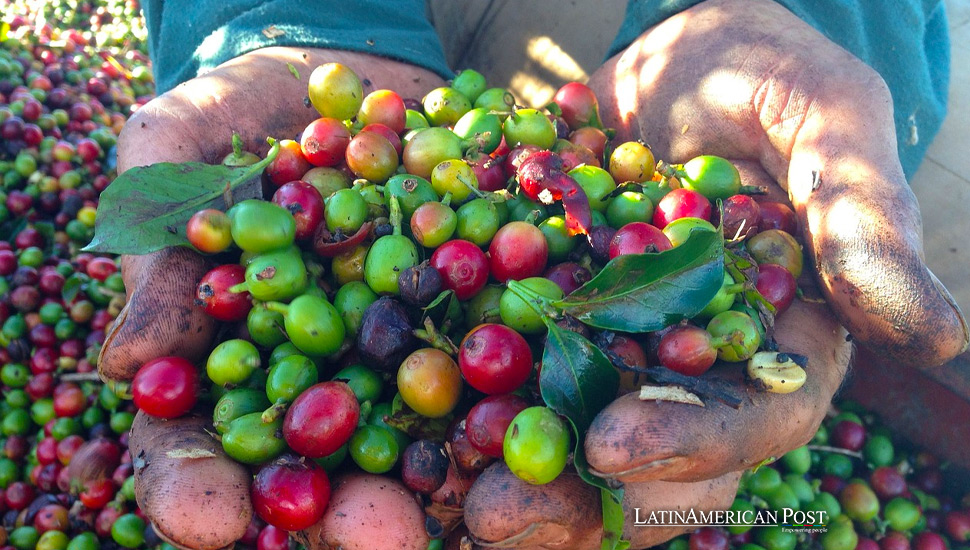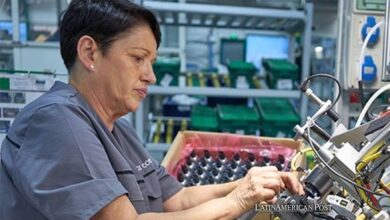Nicaragua’s Coffee Culture: Brewing Sustainability and Quality

In the lush landscapes of Nicaragua, a coffee revolution brews, where small-scale producers are pioneering innovations to cultivate sustainable, high-quality coffee. This feature explores the heart of Nicaragua’s coffee culture, highlighting the journey towards sustainability and the global impact of their efforts.
Once overshadowed by its regional coffee giants, Nicaragua is quietly emerging as a leader in the global market for specialty coffee. This shift is driven by a growing commitment to sustainable practices and the unwavering dedication of small-scale farmers producing exceptional coffee beans. Coffee is deeply ingrained in the Nicaraguan identity, not just as a source of economic activity but also as a cultural cornerstone, woven into the fabric of everyday life and deeply connected to the country’s rich history.
Historical Context
Coffee cultivation in Nicaragua dates back to the 18th century, initially introduced as a complement to the dominant indigo industry. Its popularity soared in the 19th century, becoming the nation’s primary export crop and a significant contributor to its economic development. Traditionally, coffee farming relied on sun-grown methods, where coffee plants were directly exposed to sunlight. However, this practice exposed the soil to increased erosion and made crops more vulnerable to pests and disease.
The Shift Towards Sustainability
A confluence of factors drove the 21st century significant shift in Nicaraguan coffee production. Changing weather patterns and climate change threatened traditional sun-grown methods, impacting yields and coffee quality. Additionally, a growing global awareness of environmental responsibility and ethical consumerism fueled the demand for sustainable coffee production.
Nicaraguan coffee farmers, particularly small-scale producers, embraced sustainable practices to adapt to these challenges and capitalize on new market opportunities. Organic farming practices, which eliminate harmful chemical fertilizers and pesticides, are gaining traction, protecting the environment and enhancing soil health. Shade-grown coffee, where coffee plants are cultivated under the canopy of more giant trees, is becoming increasingly prevalent. This method fosters biodiversity, protects surrounding ecosystems, and contributes to a more complex and nuanced flavor profile in the coffee beans. Conservation efforts, including water-saving techniques and responsible waste management, are also being implemented to ensure long-term sustainability.
Challenges to Sustainability
While the transition toward sustainability holds immense potential, it has. Small-scale coffee producers often need financial constraints, limiting their access to organic fertilizers, shade trees, and water-saving technologies. Additionally, navigating the complexities of entering specialty coffee markets, which often require certifications and premium pricing, can be challenging due to limited resources and knowledge. Furthermore, climate change continues to pose a significant threat, with unpredictable weather patterns and extreme weather events impacting harvest yields and productivity. These challenges can sometimes force farmers to choose between adopting sustainable practices and meeting their immediate needs.
Innovations in Coffee Cultivation
Despite these obstacles, Nicaraguan coffee producers demonstrate remarkable resilience and ingenuity. The adoption of technology is playing a crucial role in driving both sustainability and improved coffee quality. Precision agriculture techniques, such as soil testing and targeted nutrient management, are optimizing resource usage and boosting yields. Farmers are also experimenting with different coffee varietals, each with unique taste profiles and disease-resistance characteristics, allowing them to adapt to changing climatic conditions. Innovative processing methods, including honey, natural, and anaerobic fermentation, are being explored to create unique taste profiles and cater to diverse consumer preferences.
The Role of Cooperatives and Organizations
The path towards sustainable coffee production in Nicaragua is a collaborative journey. Cooperatives and organizations play a vital role in supporting small-scale producers. These entities provide access to training programs on sustainable farming practices, facilitate market linkages with international buyers, and offer financial assistance through micro-loans and fair-trade initiatives. Non-governmental organizations (NGOs) and international organizations work alongside local communities, offering technical expertise, promoting environmental conservation, and advocating for policy changes that support sustainable coffee production.
Economic and Social Impacts
The transition towards sustainable coffee production yields positive results for environmental and local communities. Small-scale farmers are experiencing increased income due to higher prices fetched by specialty coffee beans in the global market. Fair-trade certifications further guarantee a fairer share of the profits, improving their livelihood and economic security. These financial improvements, in turn, contribute to social development in coffee-producing regions. Increased income allows for investments in education, healthcare, and infrastructure development, leading to improved living standards and a more promising future for communities.
The Global Coffee Market
Nicaragua’s commitment to sustainable and high-quality coffee production has garnered increased international recognition. Its coffee is now sought after by specialty coffee roasters and discerning consumers around the world, appreciated for its unique flavor profiles, complex acidity, and smooth finish. The country has carved a niche in the specialty coffee market, showcasing the potential of sustainable practices alongside exceptional taste. However, competing in the global market comes with its own set of challenges. Fluctuating market prices, competition from other coffee-producing nations, and the ever-evolving preferences of consumers necessitate constant adaptation and innovation.
The Future of Nicaraguan Coffee
Looking ahead, the future of Nicaraguan coffee appears intertwined with its continued commitment to sustainability and innovation. Continued research on climate-resilient coffee varietals and investments in technology and infrastructure will be crucial for adapting to a changing climate and ensuring long-term productivity. Strengthening partnerships with international organizations and fostering knowledge exchange can further enhance sustainable practices and empower local communities.
Also read: Nicaragua’s Church Under Siege With The Detention of Defiant Clergy
As the global demand for ethically sourced, high-quality coffee continues to rise, Nicaragua is well-positioned to take a leading role in the specialty coffee market. By embracing sustainable practices, nurturing a culture of innovation, and empowering local communities, Nicaraguan coffee has the potential to become a global symbol of quality and a model for sustainable agriculture and community development. The rich aroma of Nicaraguan coffee, wafting from lush landscapes cultivated with care and innovation, signifies not just a delicious beverage but a testament to the resilience and ingenuity of its people, brewing a brighter future, one cup at a time.





